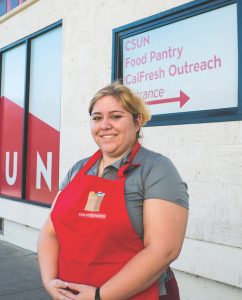The University of Southern California’s Alzheimer’s Therapeutic Research Institute (ATRI) is using research and analysis to slow the ever-growing Alzheimer’s […more…]
USC Alzheimer’s Therapeutic Research Institute
keck.usc.edu/atri
(858) 616-7557
Program Administrator: Shelley Moore
Mission
The mission of the Alzheimer’s Therapeutic Research Institute’s (ATRI) is to rigorously test methods for early detection of and treatments for Alzheimer’s disease (AD). Led by Paul Aisen, MD, ATRI is comprised by a growing set of teams of highly skilled researchers with expertise in biostatistics, psychology, informatics, bench science, molecular neuroimaging, neuroscience and more.
Begin to Build a Relationship
We know you care about where your money goes and how it is used. Connect with this organization’s leadership in order to begin to build this important relationship. Your email will be sent directly to this organization’s Director of Development and/or Executive Director.
Making Alzheimer’s A Survivable Disease
Although there is still no cure for Alzheimer’s disease, the USC Keck School of Medicine’s Alzheimer’s Therapeutic Research Institute (ATRI) is working to make it a disease you can survive.
One project, the APT Webstudy, is for people who want to know their risks and participate in research. Aisen describes it as a way “to connect investigators with people who are at least 50 years of age, and therefore have entered the period of early risk for Alzheimer’s disease” and to track changes and report those changes back to people for discussion with their own clinicians. But it also allows us, the investigators, to analyze that data. And when we think someone is showing a change that indicates a risk, we can suggest that they come in for a blood biomarker test or an amyloid PET scan and we can definitively determine whether they have amyloid accumulation.
For those people who want to participate in clinical trials, they should find out whether they have amyloid. If they do, they can join trials of drugs that remove amyloid that are being conducted now. The APT Webstudy link is: www.aptwebstudy.org.
With enough funding, ATRI’s ongoing work, in validating early detection testing and treatments that target those early signs before symptoms occur, promises to revolutionize how the right people can be identified quickly and successfully treated.
To find out more about how to support Keck School of Medicine of USC’s ATRI and to donate, please visit www.keck.usc.edu/atri/support-us.
